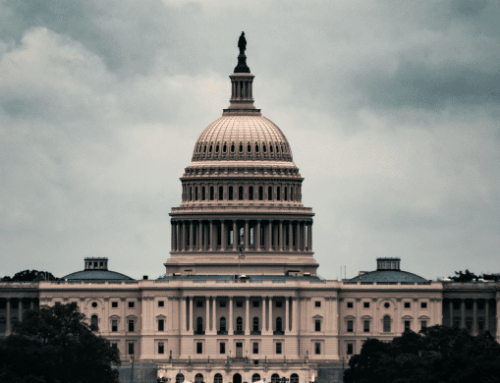For the second time in two weeks, a committee of the House of Representatives is training a spotlight on Pentagon programs. First it was the House Appropriations Committee. The panel which oversees the Pentagon passed a draft spending bill that rejects the use of slushy “Overseas Contingency Operations” (OCO) funds on things that are neither overseas nor contingencies.
Step one.
This week the Armed Services Committee in the House (HASC) took up the so-called “authorizing” legislation which sets both policy and, supposedly, caps on each spending line. We say “supposedly” because it’s been a good many years since the Appropriations Committees have felt constrained by spending levels set by the Armed Services Committees.
Unfortunately, that quaint nod to proper budgeting processes has all but disappeared. So at Taxpayers for Common Sense we look for other indications that the Congress is fulfilling its Article I legislative powers.
We’re encouraged by what we are seeing in the actions of the Armed Services Committee. With the caution that we don’t have all the details on exactly what each section of the eventual HASC bill will say, we’ve seen enough of the draft documents to have a good idea how the committee is approaching spending and oversight. And the news is encouraging. Like their Appropriations counterparts, the HASC is leveling a beady eye on the use of gimmicky, off-budget OCO funds.
Step two.
Like the Appropriations Committee, the members of the Armed Services Committee take steps to reject the use of the OCO accounts for things that are longstanding DoD activities and requirements and, in many cases, are not taking place overseas. The Trump Administration was brazen in its budget request that the OCO request included base budget requirements. Without a trace of irony, the budget documents claimed this was necessary to “comply” with the requirements of the Budget Control Act. Of course, as we wrote at the time, this is purely an evasion of the BCA budget caps.
Once the Committee has finalized its consideration of the bill and we’re able to pore over all the graphs and tables we’ll know more. But we’re hopeful that, at a minimum, the HASC agreed with the Appropriations Committee and rejected such Trump Administration OCO abuses as:
- Requesting huge categories of procurement spending entirely in the OCO accounts – including the procurement of all ammunition for each military service.
- Modernizing submarine launched intercontinental ballistic missiles using OCO funds.
- Requesting wide swaths of routine operations and maintenance work through the OCO accounts, including almost 80 percent of ship depot maintenance.
We’re also hopeful that the HASC is cracking down on the gimmicky slush fund within a slush fund that is the European Deterrence Initiative (EDI). This program seems to be a very expensive (roughly $6 billion!) foray into what our contribution to NATO is supposed to achieve. So we’re encouraged to see the HASC statutory language requiring a very specific spending plan be presented before the Pentagon can use hundreds of millions of dollars in EDI funds on “unspecified Europe” military construction programs.
Here’s the thing: If you’re at the point of putting up buildings or laying asphalt, you’re past the point of a “contingency.” But the sad fact is that off-budget military construction in EDI has led to England receiving more military construction than some states with a major military presence like Oklahoma, Florida, and Virginia.
There’s more work to be done to clean up the abuses of OCO that have been allowed to fester for years. But we’re happy to see the House Armed Services Committee continue the trend of greater spending oversight.










